
Top 5 reasons to buy a camper-trailer
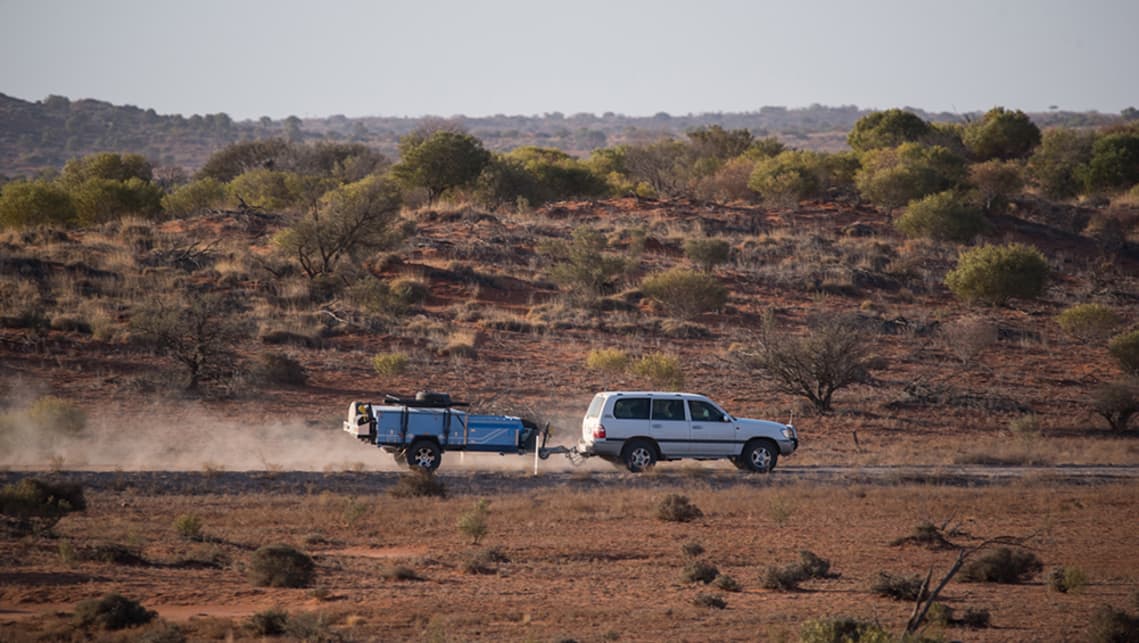
Beyond the realm of swags, tents and any manner of DIY shelters, camper-trailers provide a comfortable way for you to enjoy the outdoors in all their glory - to become at one with nature, even. Sounds like a bunch of bollocks, doesn't it?
But it’s actually true. A camper-trailer is a low-cost, low-impact way of experiencing the beach and bush as much as is possible. So, in the spirit of that philosophy, here are our top-five reasons to buy a camper-trailer.
Low Cost
Compared to the purchase price of some off-road caravans, or the cumulative costs of staying at a hotel, resort or in Airbnb accommodation, camper-trailers are a relatively low-cost option. There’s the initial outlay (anywhere between $5000 and $60,000, depending on your budget), plus any maintenance and repair costs you’ll be obliged to pay during your years of ownership.
But think about it, you may use your camper-trailer on numerous memorable trips in the foreseeable future. And you can take them when and where you want. So a camper-trailer is well worth the cost, which works out to be not too much at all anyway.
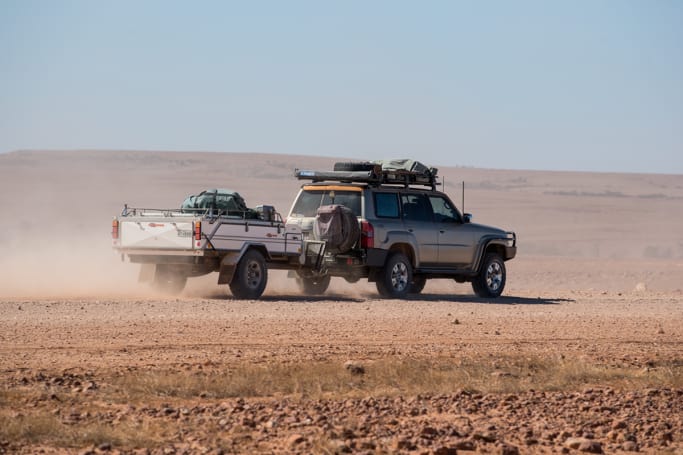
Low Impact
Along with taking your campsite rubbish back home with you when you leave, minimising the extent of damage you might do to tracks on the way to your campsite and back are crucial aspects of responsible use of the outdoors.
Camper-trailers are, by their very nature, designed to be low-impact vehicles, and towed well, they will have very little, if any, impact on the environment through which they’re hauled. They are light and narrow, especially when compared to bulkier, heavier off-road caravans, and they generally have track-friendly wheel tracks and tyres, as well as purpose-built suspension – all resulting in less of an impact on vegetation at the sides of tracks and at campsites.
They are also self-contained units with plenty of storage space, so there’s no need to discard anything when used or emptied; it can be neatly packed away into the camper.
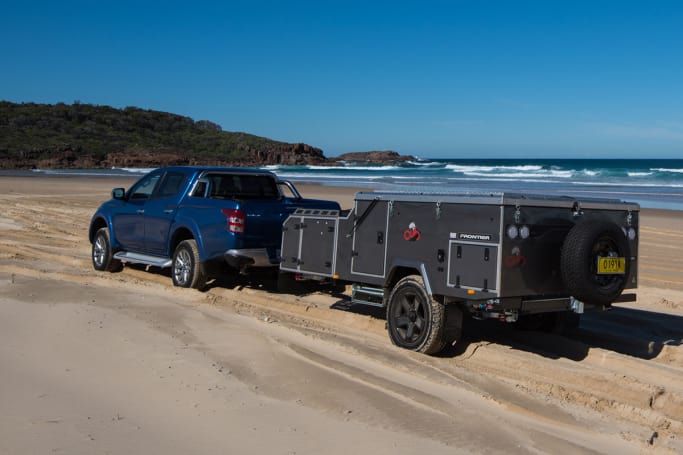
Versatility
Camper-trailers, especially those built for off-roading, can be towed through a great variety of terrain, but be aware of your camper’s limitations. Touring versions of campers are generally set up for mostly road driving, while adventure-styled models of some campers are engineered for dirt or gravel roads, but nothing more punishing than that.
There are, however, purpose-built off-road campers with, among other things, better dust-sealing properties and greater ground clearance than regular campers, as well as bush-ready tyres and suspension and an overall build quality that's more robust than any mainstream campers. These go-almost-anywhere campers are regularly seen on adventures in places such as Fraser Island, the Simpson Desert, or on the way to and from Cape York.
Please note: As always, read your warranty and/or owner’s manual because some manufacturers, for instance Jayco, make it very clear that even their Outback range of campers is only intended “for limited unsealed road usage” and “under no circumstances” should those campers “be exposed to water crossings at, or above, body floor level”. The warranty goes on to state that those campers “are not designed for hard impact or heavy landings or severely rutted roads or tracks”, and they “are not designed for use on four-wheel-drive-only tracks”.
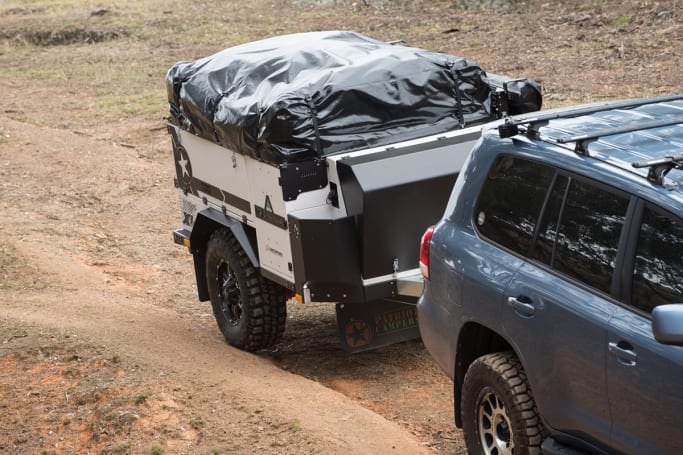
Convenience
Many contemporary camper-trailers are equipped with all of the mod cons – well, most of them anyway – that you could ever wish to use when you’re out camping. Sure, some features are optional extras but camper-trailer owners can have access to hot water, drawers for everything, slide-out stoves and fridges, a stainless-steel kitchen and sink, bedside lighting, and even stuff like a Weber BabyQ barbecue on a swing-out arm.
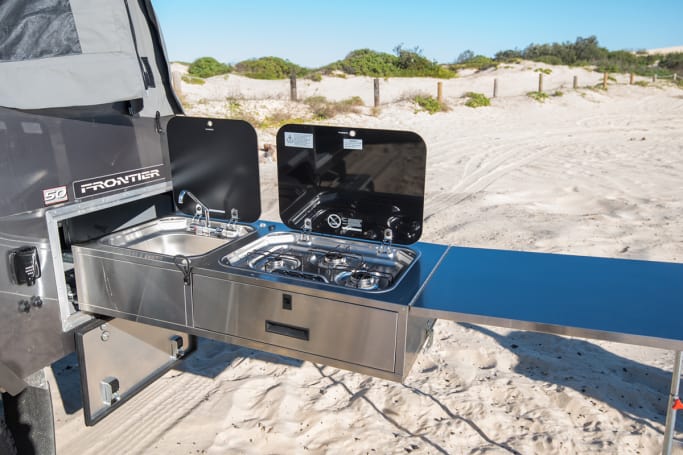
Easy to Tow
Camper-trailers, generally small, light, narrow and not so tall, are easy to tow by a variety of vehicles, small SUV or otherwise.
The modest dimensions and weight of the majority of camper-trailers give them enormous appeal to, well, everyone, but especially those who care about the impact they have on the environment and those who may not be so comfortable with towing responsibilities.
Camper-trailers in Australia range from about 400kg (for a pod-style roof-top camper) to about 1400kg and then some.
Its light weight means a camper places less cumulative stress on a tow vehicle, and because its dimensions are not gargantuan, a camper is also easier to maneuver anywhere.
All in all, a camper-trailer makes for an attractive towing proposition.
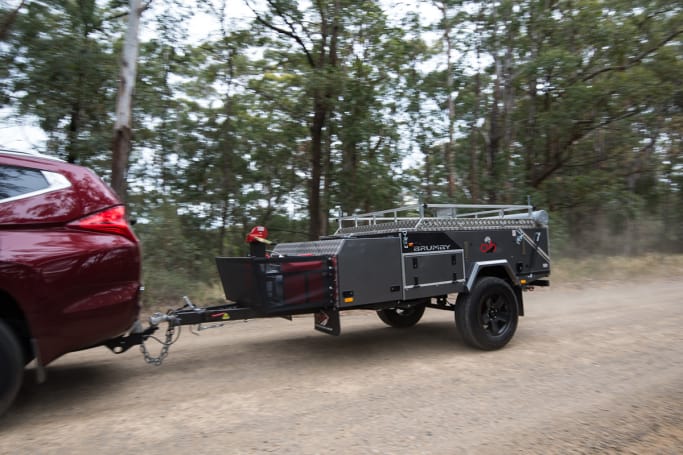









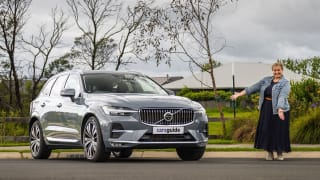
Comments